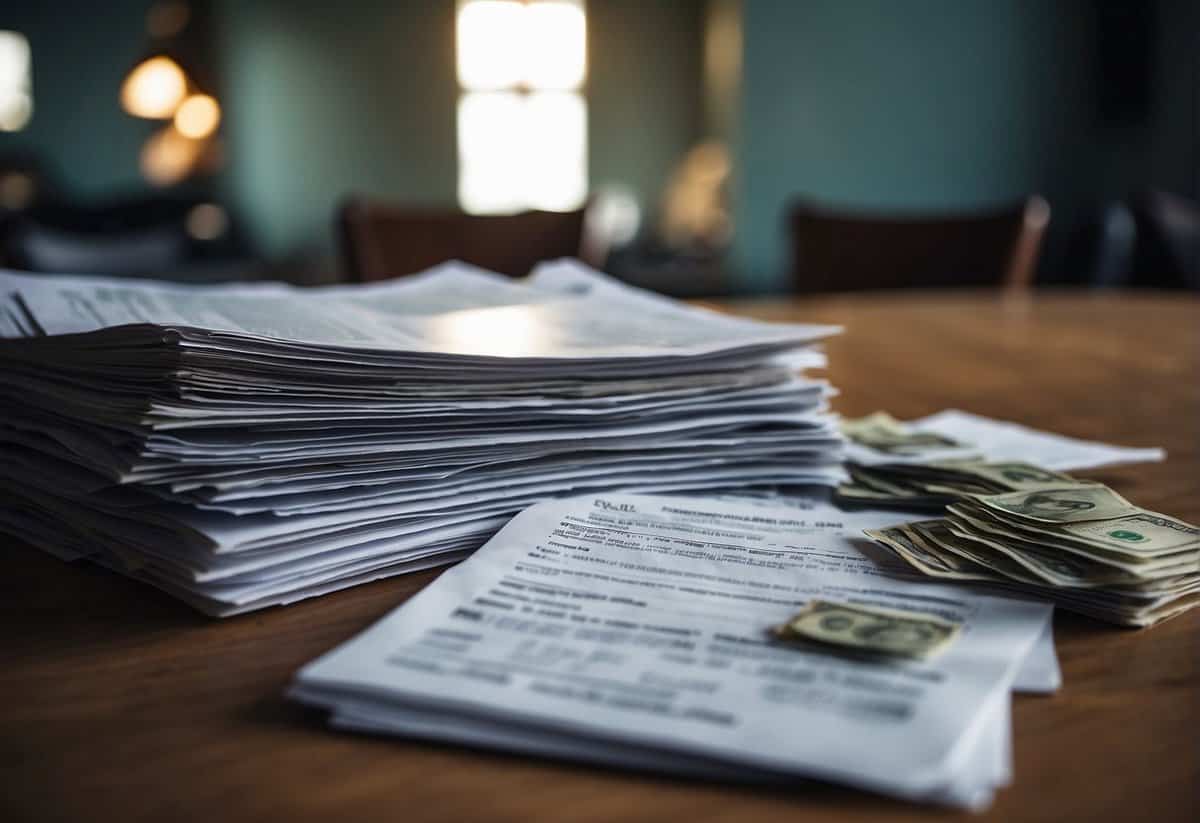Do You Inherit Your Spouse’s Debt? Understanding Marital Debt After Loss
When a spouse passes away, the surviving partner often wonders about the responsibilities toward the debt left behind. Understanding what debts you may be liable for is crucial. Generally, you are not responsible for your spouse’s debts that were incurred before marriage. However, if you co-signed a loan or if your credit accounts were joint, you may be obligated to pay off these debts. Additionally, the rules can vary if you live in a community property state—typically, spouses are responsible for any debt incurred during the marriage.

The laws governing debt inheritance are complex and vary from state to state. In common law states, you are only responsible for the debt of your spouse if your name is on it. Estate assets are usually used to pay off the deceased’s debts before any distributions to inheritors can be made. It’s important to be proactive in understanding how these rules apply to your specific situation to protect yourself and any inheritance you may be entitled to.
Key Takeaways
- You are not automatically responsible for a spouse’s debt incurred before marriage.
- State laws and whether you co-signed influence your liability for a spouse’s debt.
- Estate assets are typically used first to settle a deceased spouse’s debt.
Understanding Marital Debt

When you tie the knot, it’s not just your lives that merge, but also the potential for shared financial responsibilities. Understanding the nuances of marital debt is key to managing your finances effectively as a couple.
Community Property vs. Common Law States
In the United States, marriage can affect your liability for debt depending on where you live. In community property states, both spouses are typically responsible for debts incurred by either one during the marriage. This means that a debt collector can pursue either spouse for payment. The nine community property states are Arizona, California, Idaho, Louisiana, Nevada, New Mexico, Texas, Washington, and Wisconsin.
Conversely, in common law states, you are not automatically held accountable for your spouse’s debts unless your name is attached to it as a co-signer or joint account holder. However, joint debt is an exception; if you and your spouse have co-borrowed, you’re both responsible for its repayment.
Joint Debts and Joint Accounts
When you and your spouse have a joint account or co-sign a loan, you’re both taking on the joint debt and are equally liable. For debt collectors, it doesn’t matter who incurred the debt or who spent the money; both spouses are legally responsible. Here’s how it typically works:
- Joint Credit Card Account: Both responsible for charges
- Co-signed Loan: Both accountable for repayments
Impact of Debt on Credit Scores
Your credit score is an essential measure of financial health. When you’re married, your own debts and credit activities remain your responsibility and affect your individual credit score. However, for joint debts, the activities of both you and your spouse can impact each of your credit scores. Late payments or default on any joint debt can negatively affect both parties’ credit scores.
Understanding these aspects of marital debt will help you navigate the financial side of marriage, allowing you to make informed decisions to protect your financial future together.
Legal Aspects of Inheriting Debt
When a loved one passes away, it’s crucial for you to understand your rights and obligations concerning their debts. Here, we’ll explore how debts are handled after death, your legal responsibilities as a spouse, and protections under the law.

Probate and Non-Probate Assets
During the probate process, your spouse’s estate goes through a legal procedure to validate their will and distribute assets under court supervision. Probate assets are typically those owned solely by your spouse, and they may be used to pay off debts. However, non-probate assets which include life insurance policies and jointly-owned property usually bypass probate and can transfer directly to you without being accessible to creditors.
Spouse’s Legal Obligation to Debt
Whether you’re responsible for your spouse’s debts after their death depends largely on state laws. In community property states, you may be liable for any debts incurred during the marriage, even if they were solely in your spouse’s name. Alternatively, in other states, you would typically not be responsible unless you co-signed for the debt or it was for family necessities, hinting at filial responsibility laws.
Fair Debt Collection Practices
You’re protected from unfair and aggressive debt collection practices by the Fair Debt Collection Practices Act (FDCPA). Collectors cannot mislead or harass you into paying debts for which you’re not legally responsible. If you encounter such practices, you have the right to file a complaint with the Federal Trade Commission (FTC).
Protecting Yourself and Your Assets

When wondering about whether you inherit your spouse’s debt, it’s crucial to understand how to safeguard your finances and what belongs to you. By being proactive with legal guidance and learning which assets are shielded, you can ensure a more secure financial future.
Seeking Legal Advice
Consulting with an attorney can be a vital step in protecting your assets from your spouse’s debt. A lawyer can provide specific advice on the intricacies of your individual circumstances and guide you through the necessary legal processes involved in estate planning. They can also clarify your responsibilities towards your spouse’s debt and inform you on how to legally separate your liability.
Estate Planning Considerations
Engaging in estate planning is integral in managing how your assets will be handled in the event of your spouse’s death. This process includes setting up mechanisms like a living trust which allows certain assets to pass directly to beneficiaries without going through probate. Remember, items that go through probate can be used to settle debts, so focusing on non-probate assets such as life insurance and retirement accounts is a practical strategy to protect your estate’s assets.
Types of Protected Assets
Protected assets typically are not liable for your spouse’s debts after their passing. For instance, life insurance proceeds and retirement accounts often fall under this category. Other protected assets may include property held in a living trust and certain types of jointly owned property. It’s important to understand that different states may have varying protections for assets, and some assets may be shielded from creditors up to a certain value.
By staying informed and preparing in advance, you can establish a secure buffer for your assets against potential claims.
Frequently Asked Questions

Dealing with debt after a spouse’s death can be stressful and confusing. Here’s what you need to know about your responsibilities towards your spouse’s debts.
If my spouse dies, do I have to pay their debts?
You are not automatically responsible for your spouse’s debts after they die. However, if the account was joint or you cosigned, then you will continue to be responsible for those debts.
Are marital debts shared after one spouse passes away?
Debts taken on during marriage may be handled differently based on your state’s law. Typically, common law states do not hold you responsible for a spouse’s debts unless you voluntarily assumed them by, for example, co-signing a loan.
In which states might I be liable for my spouse’s debt after their death?
In community property states, you may be liable for the debts of your spouse incurred during the marriage, even if you were not a co-signer or joint account holder. Learn the laws specific to your state to understand your obligations.
How is debt handled when there’s no estate left by a deceased spouse?
If there are no assets left in the deceased spouse’s estate, creditors may not be able to collect on the debts. However, they might try to collect from any jointly held assets or community property you own together.
Does a spouse’s pre-marriage debt become the responsibility of the other after marriage?
Typically, a spouse’s pre-marriage debt remains their own. You would not be held responsible for debt your spouse had before getting married unless you refinance the debt in both of your names.
What happens to my spouse’s credit card debt if they die and there’s no estate?
Credit card debt of the deceased may be written off if there is no estate to claim against. Credit card companies should be notified of the death, and any additional steps like informing the credit bureaus will also need to be taken.

